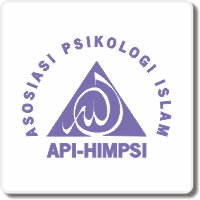Investigating Between Social Intelligence and Moral Intelligence to Academic Achievement in Psychology Students
DOI:
https://doi.org/10.32923/psc.v5i1.3203Keywords:
social intelligence, moral intelligence, academic achievement, psychology studentsAbstract
In Indonesia, education is regulated within Law Number 20 of 2003 Chapter 6. This proves that education is significant. Education can guide human life, both individual and social life. One of the things discussed in education is academic achievement. Academic achievement is the result achieved by students, there are at least two factors that influence the increase in academic achievement, namely social intelligence and moral intelligence. This study aimed to determine the relationship between social intelligence and moral intelligence with academic achievement in psychology faculty students. The research subjects totaled 110 students using a purposive random sampling technique. Three measuring instruments are used in this study with details of two variables using a scale and one using documentation. The social intelligence variable is measured based on two aspects with eight indicators from Goleman, the moral intelligence variable is measured based on the four aspects from Lennick & Kiel, and then the academic achievement variable uses the student achievement index (IP) in the form of documentation. Analysis was performed using multiple regression. The results of the hypothesis prove that social intelligence and moral intelligence have a significant relationship with academic achievement, with a value of p = 0.006 (p <0.05), r = 0.319, R2 = 0.102, F = 5.370. Thus, it can be concluded that the variables of social intelligence and moral intelligence together make an effective contribution of 10.2% to increasing academic achievement.
Downloads
Published
Issue
Section
License
Copyright Notice
The Psychosophia: Journal of Psychology, Religion, and Humanity is under the Creative Commons Attribution 4.0 International (CC-BY 4.0) License, according to which:
1) Authors retain copyright and grant the journal the right to first publication, with the work simultaneously licensed under the Creative Commons Attribution (CC-BY 4.0) that allows the sharing of articles published with the acknowledgment of authorship and the initial publication in this journal.
2) The authors are authorized to make additional contracts separately for distribution of the version of the work published in this journal (for example, publication in an institutional repository or as a chapter of the book), as long as there is recognition of authorship and initial publication in this journal.
3) Authors are authorized and encouraged to publish and distribute their work online (for example, in institutional repositories or on their personal pages) at any time before or during the editorial process, as it increases the impact and reference of the published work.






